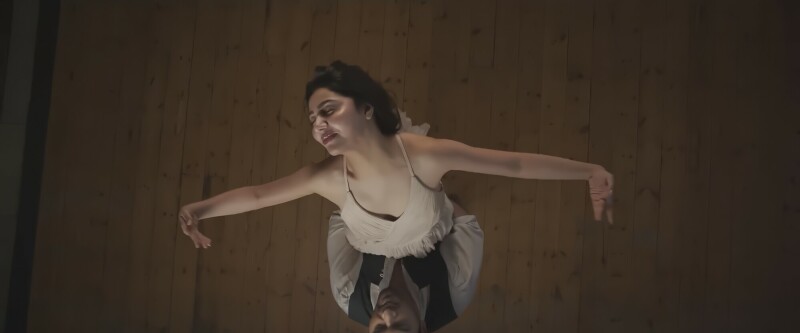Review: Manto’s timeless narratives Akeli and Sari staged at Napa
Being deeply drawn to works that are ahead of their time, I was keen to watch Saadat Hasan Manto’s Akeli and Sari which were staged at the National Academy of Performing Arts (Napa).
The two plays boldly addressed issues that remain relevant today. Manto’s plays, known for their feminist perspectives and incisive commentary on class dynamics, resonated acutely as the narratives challenged societal norms and provoked thought. His ability to capture the complexities of human experience and social injustice through powerful storytelling makes his works not only compelling but also profoundly impactful.

The first play, Akeli, features characters Soshila (Hiba Ali Khan), Kishore (Usman Javed), and Motia (Zulfiqar Ghouri). Kishore embodies the classic elite who believes that everything has a price, including love. He purchases the affection of the beautiful courtesan Soshila, who comes to live with him. Despite their two years together, Kishore is unable to truly love her, though he is fond of her — perhaps fearing to use a stronger word.
On Soshila’s birthday, Kishore gifts her a sari, symbolising his tendency to shower her with the material possessions she desires. However, this does nothing to alleviate her profound loneliness, as she remains akeli (alone). In Kishore’s words, “Chali gai, aur sari bhi kaam agai. [She left and put the sari to use].” Soshila ultimately uses the same sari to elope with Motia, who is already engaged to his cousin in his village. The play delves into Soshila’s internal conflict as she wrestles with the choice between the wealth and security offered by Kishore and the genuine love she feels for Motia.
The second play, Sari, presents a similar paradox. Malti (Reham Rafiq) is an ordinary tailor who stitches clothes for Seth Sahib (Syed Jameel). When she delivers seven promised shirts to him, he attempts to lure her with promises of wealth, offering her the finest clothes, luxurious vacations, cars, and jewellery. He tries to convince her that her hands are not meant for cutting cloth, but for holding the beauty within her.

However, Malti is in love with a poet (Wahab Shah) who showers her with words of beauty and grace. Despite his talent, the poet struggles to publish his poems, facing rejection after rejection. Adding to his woes, an essayist released a scathing critique of his work in the same book, a classic setback in the publishing industry.
Watching Manto’s plays offers a unique opportunity to engage with timeless themes and to appreciate the courage and insight of a literary pioneer. Both the plays poignantly explore the complex interplay of class dynamics, love, betrayal and the existential challenges of human desires.
Akeli explains how the elite believe that everything, including love, can be bought. The characters of Kishore and Motia highlight the paradox of love versus wealth. Soshila’s struggle reflects the harsh reality that while money can provide security, it cannot fill the void of emotional fulfilment. Sari depicts a similar dilemma. This underscores the harsh truth that poetry and love, while nourishing the soul, cannot pay the bills or provide material security. Conversely, the wealth offered by Seth Sahib cannot fulfil Malti’s need for genuine emotional connection and creative expression.
Both plays highlight the enduring tension between material wealth and emotional fulfilment, illustrating that neither wealth nor love alone can wholly satisfy the complex needs of the human spirit.

Javed stole the show in Akeli with his realization of his love for Soshila, certain that she would return to him. His dialogue delivery was impeccable, especially in the climactic scene where he had to step out of his comfort zone, using higher tones and hurried movements in contrast to his usually calm demeanour. Khan, though sometimes speaking in decibels higher than necessary, delivered creative and precise expressions in every scene.
Rafiq’s performance felt slightly underwhelming, especially following the portrayal of a highly emotional and strong Soshila. Sari focused more on the dance and creative movements of Shah. His seamless transitions to the music were particularly captivating, culminating in a mesmerizing finale where he enveloped himself with the swirling sari while holding his poetry, eventually letting it go. However, his dance performance somewhat overshadowed the other characters.

Rao Jamal Singh Rajput did a fantastic job with the direction, and full marks go to the set designer for capturing each scene’s essence perfectly. Both plays are a tribute to Zia Mohyeddin and will also be running in July in Lahore and Islamabad. So, keep an eye out for them!














Comments